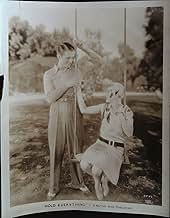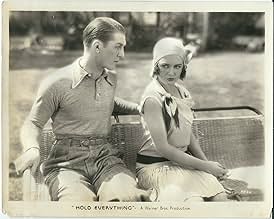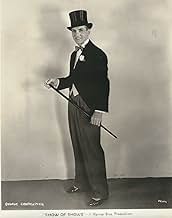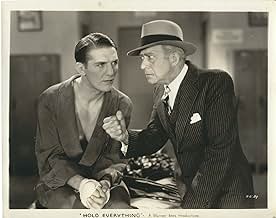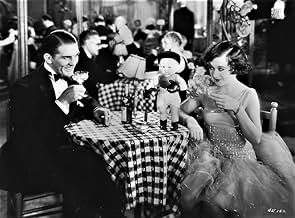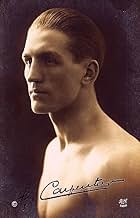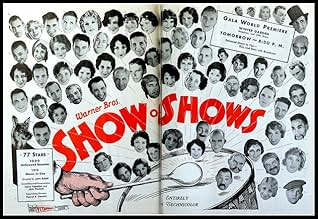Georges Carpentier(1894-1975)
- Actor
- Soundtrack
Georges Carpentier was a French boxer who reigned as the world's light
heavyweight champion in 1920-22. He is best remembered for his fight
for the world's heavyweight crown with champ
Jack Dempsey, one of the highlights
of the Roaring Twenties. Born on January 12, 1894, in Liévin,
Pas-de-Calais, France, he first fought professionally as a welterweight
and then worked his way up the weight classes, picking up championship
belts along the way. Though he failed to topple "The Manassa Mauler"
from his perch at the top of the world sports hierarchy, he did win a
watered-down, bastardized version of that prize.
Turning pro at the age of 14, Carpentier first won the European welterweight championship in 1911. He became European middleweight champion in 1912 and won the European light heavyweight and heavyweight titles in 1913. The following year, he fought Gunboat Smith, the "White Heavyweight Champion of the World" (African American Jack Johnson still held claim to the world's heavyweight championship) and beat him. The "title", which came out of the quest for "The Great White Hope" to best Johnson, who was despised by white supremacists, was never recognized as a real boxing championship.
During World War One, Carpentier served as an aviator, winning the Croix de Guerre and the Médaille Militaire, two of France's highest military decorations. That this superb athlete was also a war hero boosted his popularity and made him a well-known name in the United States.
After the Great War, Carpentier twice defended his European heavyweight championship in 1919. While France was battling Germany on the West Front, Jack Johnson lost his title to Jess Willard in 1915, eliminating the phantom "White Heavyweight Championship" title. Willard, in turn, lost to Dempsey in 1919, the same year of Carpentier's title defenses. In 1920, Carpentier dropped in weight and beat Battling Levinsky for the world's light heavyweight championship. The title match was held in America, as was his challenge to Dempsey for the heavyweight crown.
The fight, held on July 2, 1921, in Jersey City, New Jersey (the site of the Lewinsky fight), was the first million dollar gate in boxing history. Living up to his nickname, Dempsey mauled Carpentier in the first three rounds before knocking him out in the fourth. The Frenchman would never again compete as a heavyweight.
He lost his world light heavyweight title and his European heavyweight and light heavyweight titles the following year. In 1924, the 30-year-old Carpentier was matched with Dempsey's future vanquisher Gene Tunney the light heavyweight champion of North America, at New York's Polo Grounds. Tunney, three years Carpentier's junior, took the bout with a TKO in fifteen rounds. Carpentier eventually retired from boxing in 1927.
After the ring, he became an entertainer, appearing in vaudeville, primarily in American and England. Carpentier made several movies in the silent and sound era and wrote a novel. He eventually ran a bistro, Chez Georges Carpentier. He remained friends with Dempsey, who also became a restaurateur, for the rest of his life.
Georges Carpentier died in Paris of a heart attack on October 28, 1975. He was 81 years old.
Turning pro at the age of 14, Carpentier first won the European welterweight championship in 1911. He became European middleweight champion in 1912 and won the European light heavyweight and heavyweight titles in 1913. The following year, he fought Gunboat Smith, the "White Heavyweight Champion of the World" (African American Jack Johnson still held claim to the world's heavyweight championship) and beat him. The "title", which came out of the quest for "The Great White Hope" to best Johnson, who was despised by white supremacists, was never recognized as a real boxing championship.
During World War One, Carpentier served as an aviator, winning the Croix de Guerre and the Médaille Militaire, two of France's highest military decorations. That this superb athlete was also a war hero boosted his popularity and made him a well-known name in the United States.
After the Great War, Carpentier twice defended his European heavyweight championship in 1919. While France was battling Germany on the West Front, Jack Johnson lost his title to Jess Willard in 1915, eliminating the phantom "White Heavyweight Championship" title. Willard, in turn, lost to Dempsey in 1919, the same year of Carpentier's title defenses. In 1920, Carpentier dropped in weight and beat Battling Levinsky for the world's light heavyweight championship. The title match was held in America, as was his challenge to Dempsey for the heavyweight crown.
The fight, held on July 2, 1921, in Jersey City, New Jersey (the site of the Lewinsky fight), was the first million dollar gate in boxing history. Living up to his nickname, Dempsey mauled Carpentier in the first three rounds before knocking him out in the fourth. The Frenchman would never again compete as a heavyweight.
He lost his world light heavyweight title and his European heavyweight and light heavyweight titles the following year. In 1924, the 30-year-old Carpentier was matched with Dempsey's future vanquisher Gene Tunney the light heavyweight champion of North America, at New York's Polo Grounds. Tunney, three years Carpentier's junior, took the bout with a TKO in fifteen rounds. Carpentier eventually retired from boxing in 1927.
After the ring, he became an entertainer, appearing in vaudeville, primarily in American and England. Carpentier made several movies in the silent and sound era and wrote a novel. He eventually ran a bistro, Chez Georges Carpentier. He remained friends with Dempsey, who also became a restaurateur, for the rest of his life.
Georges Carpentier died in Paris of a heart attack on October 28, 1975. He was 81 years old.

